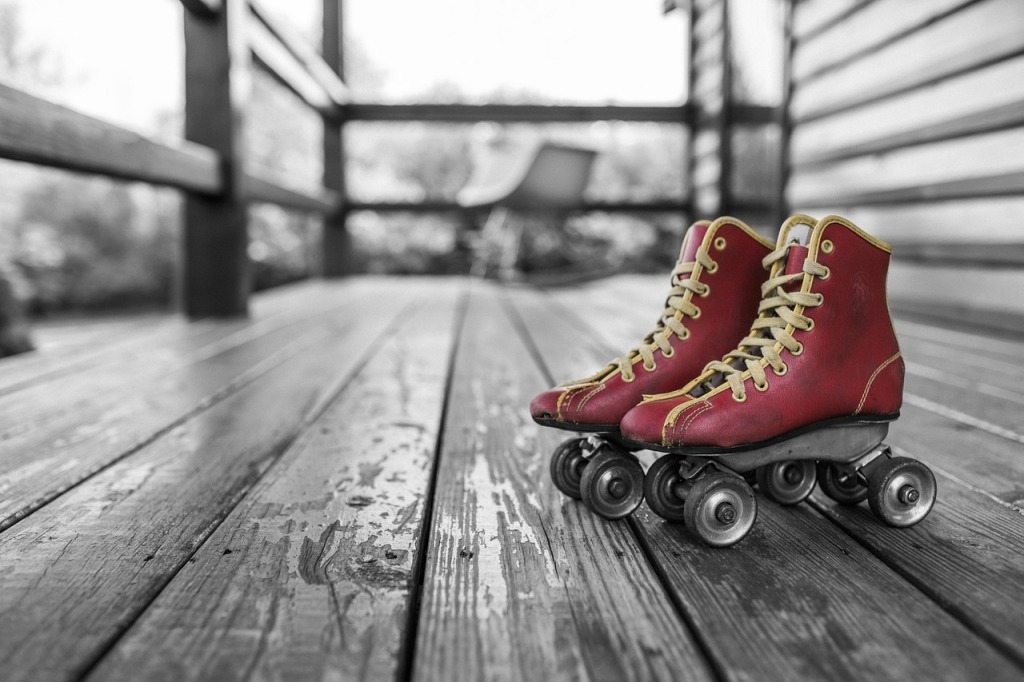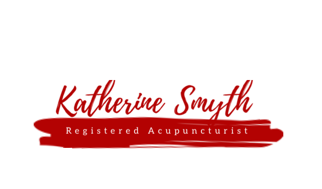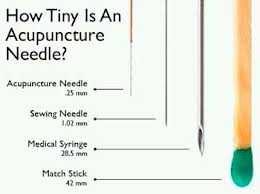One of the biggest obstacles in deciding whether or not to try acupuncture is the fear of needles. Many of us have had a bad, painful or negative experience with Western medical needles such as vaccines or blood test. If you have a fear of needles and think that acupuncture is not for you, I encourage you to reconsider. Here is some things to help dispel a painful acupuncture experience.
Acupuncture needles are not the same as hypodermic syringe. Acupuncture needles are much smaller and thinner. They are also flexible. Acupuncture needles resemble more closely with cat whiskers then a syringe. Unlike a syringe acupuncture needles are not hollow. These results in less surface area penetrating the skin. The needles are about the thickness of a human hair and thin enough to be inserted into the skin without pain.
The absent of pain does not translate to an absent of no sensation. Just like yoga it teaches students to differentiate between feeling and pain. Same goes in acupuncture. Being connected and tuned into the body will go a long way with acupuncture. Being aware of the suttle changes and sensation in the body will help aid in the treatment plan and healing process. Needle sensation will vary from person to person and even from acupuncture point to acupuncture point. Sometimes it’s a cool sensation and sometimes it’s a soft energy radiating from the needles. Everything should be comfortable and relaxing during your acupuncture treatment.
- Don’t anticipate
The majority of pain experienced by patients in acupuncture happens when they anticipate that the needle will hurt. They exaggerate the pain in their head so much that even the guide tube for the needle will make a patient yelp before the needles is even inserted. If this is you, practice breathing! Breathe deeply and focus on the air filling and leaving your lungs. Your acupuncturist will take good care of you from here.
- Many Styles and Flavors
There are many styles and techniques an acupuncturist can use to ensure you are comfortable even with the most sensitive of patients. Along with many different needle techniques there are also many different styles of acupuncture. Japanese, Korean and Chinese acupuncture all have their foundation in traditional Chinese medicine and all are very effective. Chinese style acupuncture tends to use larger needles with greater depth of insertion. They are trying to stimulate what is called “Qi”. – Life energy flowing through the body. A Chinese acupuncturist will try to enhance that sensation by gently rotating the needles. Japanese acupuncturist use thinner needles and a gentler technique with shallow insertion, sometimes only insertion into skin only. Korean acupuncture is focused on a full constitutional analysis an old concept rooted in Chinese medicine. Korean acupuncture also focuses on the extremities like hand or ear. Most of the standard acupuncture layouts in Korea use only 4 needles.
- No Needle Techniques
Still haven’t convinced you there isn’t anything to fear? There are many other techniques that your acupuncturist can use that involve no needles.
Acupressure – using pressure points on the acupuncture meridians
Tuina – Chinese style massage
Cupping – glass cups that are suctioned onto different parts of the body to help create blood flow and reduce pain
Ear seeds – uses seeds or magnates on the ear to activate pressure points to treat the whole body
GuiSha – is a scraping technique used for myofascia or breaking up scar tissue
“Fear is nothing more then an obstacles that stands in the way of progress. In overcoming our fears we can move forward stronger and wiser within ourselves”





